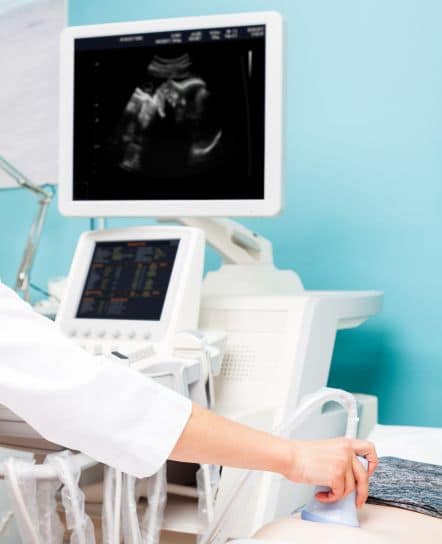What is a bowel screening test?
A bowel screening test, also known as the faecal immunochemical test (FIT), is done to find cancer early or to find changes in your bowel that could lead to cancer. The test looks for tiny traces of blood in stool samples which can be a sign of bowel cancer.
The issue with bowel cancer is it can develop with no symptoms. This means cancer can grow in the bowel for years on end before spreading to other parts of the body, which is why it is recommended to do a screening test.
How to do a bowel screening test

A screening test can be done at home and instructions will be given as to how it can be done at home and requires the collection of a stool.
You will receive an envelope with:
A detailed leaflet with instructions on how to do the test
A tube with a stick in it to collect your sample
A hygienic envelope for you to send back the sample
Once you have collected your stool:
You must dip the stick from the testing kit into the stool
Put the stick back in the tube and twist it shut
Put the tube into the envelope and post it
It is important to write the date, which makes it easier during the period of diagnosis. A bowel screening test helps find and detect symptoms of bowel cancer at an early stage.
What the results of the test mean
After doing a test, the results are likely to come back in a period of two weeks.
Negative results

Even if the results are negative or no further tests are needed at this time, it is still important to note that your symptoms should not go unnoticed. Keep in mind that screening tests detect blood in your bowel movement, and some cancers do not bleed all of the time, which can mean that the cancer was left undetected. Also, bowel cancer may start to develop in between screening tests.
Positive results

If it’s a positive result, this means that blood was found in your stool sample. However, it is important to keep in mind that this can be caused by other medical conditions and does not necessarily point to cancer. Consult a specialist for a colonoscopy, and if it is cancer, discovering you have it at an early stage means treatment is more likely to work.
How a colonoscopy works

The presence of blood in your bowel movements does not always mean you have cancer. There are many reasons you could have blood in your stools, such as:
Polyps
Haemorrhoids
Inflammation in the bowel from conditions such as Crohn’s disease or ulcerative colitis
Even so, you will need further investigation to identify the cause of the bleeding, through a colonoscopy.
A thin tube with a camera inside is passed into your anus to look for signs of bowel cancer. Having a colonoscopy may enable the cause of the bleeding to be found, any polyps to be removed, and a diagnosis of bowel cancer to be confirmed (if applicable).
What are the symptoms of bowel cancer?
Sometimes symptoms of bowel cancer can go unnoticed because they can be considered symptoms of other conditions. These are a few symptoms of bowel cancer:
Change in bowel habits including diarrhoea, constipation, or the feeling of incomplete emptying of bowels
Change in the appearance or consistency of bowel movements such as thin bowel stools blood in the stools
Abdominal pain, bloating, or cramping
Anal or rectal pain
Lump in the anus or rectum weight loss
Unexplained fatigue and tiredness
Anaemia and a pale complexion
Blood in the urine or passing urine frequently or during the night or a change in the colour of urine (rather dark, rusty, or brown)
FAQs
There are several factors that can increase the risk of bowel cancer and they involve eating habits, lifestyle choices, and inheritance:
The following factors may pose higher risks of bowel cancer:
Low-fibre diet
High consumption of red meat and processed meats
Being overweight or obese
High alcohol consumption
Tendency to smoke tobacco
Inherited genetic risk and family history
Having an inflammatory bowel disease such as Crohn’s disease
Diagnosis of polyps
Previous diagnosis of bowel cancer
Cancer in the bowel is a highly treatable and often curable disease when localised to the bowel. Surgery is the primary form of treatment and results in a cure in approximately 50% of patients. Bowel cancer is more common in people over the age of 50, but it can affect anyone.
The earlier the diagnosis of bowel cancer, the earliest it can be cured. After the first screening for bowel cancer, you will be tested every two years until you reach the age of 75. However, if you are below the screening age and are worried you may have symptoms of bowel cancer, see your general practitioner as soon as possible.
Speak to a specialist about doing a bowel screening test
Screening for bowel cancer in people aged 50-74 who do not have any symptoms helps detect bowel cancer at its early stages. The earlier the detection of bowel cancer, the more successfully it can be treated.
Bowel cancer is the third-most common cancer affecting people in Australia and is also the second-most common cancer leading to death.
Dr. Suhirdan Vivekanandarajah is a highly experienced gastrointestinal specialist based in Sydney, Australia. He’s trained in various areas of gastroenterology and has provided his patients with the best possible support and treatment for their medical needs for many years.
If you’re concerned about your gut health, book a consultation with Dr. Suhirdan today.
